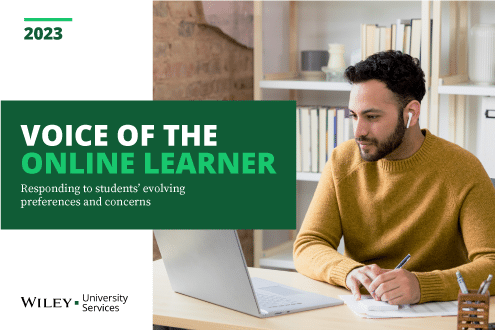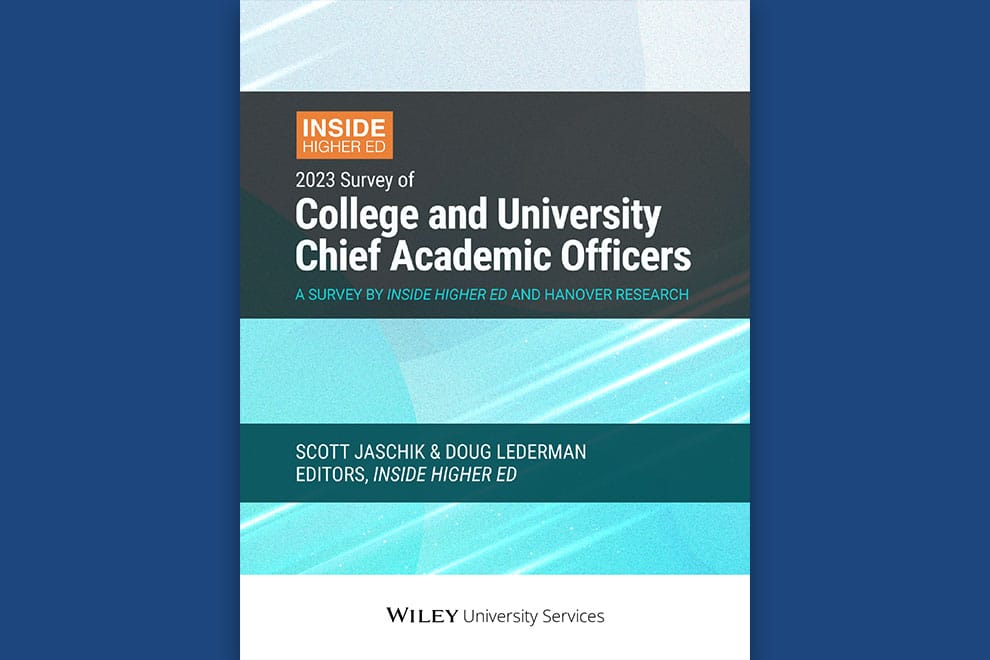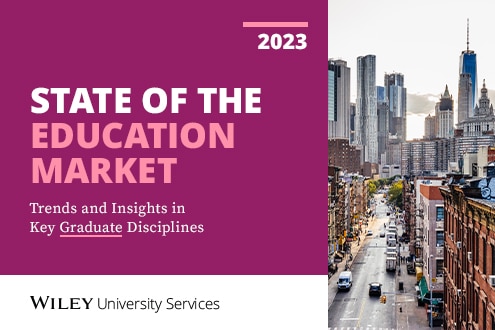Education Journeys share real-life stories of how education can impact life. We believe that education makes us better citizens, enhances progress, and makes the world a better place.
We recently spoke to our own Kittrina Downey, Instructional Designer at Wiley University Services. She discusses her love of learning and how her military background helped shape her path to higher education.
Tell us about your education path.
After graduating from high school, I went to college for about three semesters. Unfortunately, I struggled to pay tuition on my own. My bills were piling up, and I didn’t see an end in sight. So, I made a change. I have family in the military, and my grandfather served in the Navy during World War II. I always envisioned myself enlisting; when I heard about the GI Bill® and how it could help pay for my education, I enlisted in the Navy.
After boot camp, I started looking into college again. The Navy has a tuition assistance program, so I could take college courses as long as I wasn’t deployed. Once I was able to take a full course load, I entered the Workforce Education and Development Program at Southern Illinois University. My plan was to get an undergraduate degree in Education Curriculum Design and continue my Navy career working in that field. Long story short – that didn’t happen.
I met my husband through the Navy, and we had three children. When he was deployed in the Special Warfare unit, I decided to stay home with the kids. Our youngest was only six months old when I decided to pursue my bachelor’s again. I had to learn to balance being a parent with the schedule of a full-time student. My commitment to the Navy and taking care of our kids kept me busy, but I found time in between to finish my degree. I took my first college class in 2001 and graduated with my bachelor’s degree in 2012.
After earning your bachelor’s degree, your education journey was far from over. What happened next?
At that point, I was out of the military and started to look for a civilian job. Human resources interested me, and I started working as the Human Resources Manager at Salvation Army. I enjoyed aspects of this role, but I realized I wanted to focus on curriculum development. I knew my education journey wasn’t complete, so I decided to go back to school and get my MBA at Bellarmine University.
I worked more than 60 hours a week and took care of my three kids while pursuing my master’s degree. I attended classes on Friday evenings and all day every other weekend. The program was designed to take 16 to 18 months, but I increased my course load to finish in just under a year. My favorite part of this program was that my classmates and I could relate so well. Most of them had previous work experience, young families, and had not come straight out of college. We understood each other. We were able to juggle group projects and help each other when life got in the way. That was instrumental to my success.
After getting my MBA, I was hired as the Human Resources Manager for Wiley (formerly Learning House.) The curriculum team worked in the cubicles right next to me, and I got to know them. When an Instructional Designer position on their team opened, I jumped at the chance to interview. I love learning new things and decided that this job is the next best thing if I cannot be a full-time student forever. I got the job, and almost five years later, I’m still here and loving it!
Did you ever encounter a hurdle in your higher education journey, and if so, how did you overcome it?
It’s very tricky to pursue an education while you’re on active duty. First, you must make sure that you’re not stationed elsewhere or moving temporarily on assignment. Then, you need to request permission from your supervisor to make sure that it doesn’t interfere with your job. I was a parachute rigger, so I worked with the pilot and aircrew flight gear. If there was a search and rescue, I had to wait until they came in before I could leave and go to class. Sometimes this would cause me to be late or miss class. Luckily, my professors were lenient and understood. As long as I completed my work on time, I wasn’t penalized for my attendance. This caused me to feel like I was always playing catch up. I missed valuable information when I wasn’t in class, so I had to study even harder on my own time. I had to stay focused to juggle work, life, and school, but it was worth it.
What is the biggest lesson you learned from your time in the Navy, and how did that shape you into the person you are today?
Determination and work ethic. If you give me a task, I’ll complete it, and if I don’t know how, I will figure it out. I learned never to be afraid to ask questions and search for more information. Now, when I set out to complete a project at work, I make sure that it is done well and on time. My time in the Navy taught me that there will always be obstacles in life, and it is important to get yourself out of a rut and find the silver lining in any situation.
Is there a mentor or a person you’ve looked up to throughout your journey?
There have been many people who inspired me throughout my education journey, but two stand out. The first is my officer in charge while I was stationed in Guam. He enlisted, earned his degree, then became a helicopter pilot in the Navy. He furthered his education by getting his master’s and eventually his doctorate with the GI Bill. He inspired me to follow a similar path and even helped me get my first job out of the Navy. I didn’t have much work experience, so a glowing recommendation letter from him made all the difference. His guidance had a significant impact in jumpstarting my career.
My other mentor is my former business manager at the Salvation Army. I reported to her, and we clicked immediately. She took me under her wing and was patient as I learned my job responsibilities. She soon became my go-to person whenever I needed advice. Our bond grew and extended past the scope of work. We often talked about my dreams and goals for my future. When it was time for me to find a new job, she went above and beyond to help with that process. To this day, I still reach out to her. She is one of the dearest people to my heart.
What advice would you give to students who are facing obstacles similar to yours?
My greatest advice is to take some time to reflect, figure out what you enjoy, and pursue it. If you aren’t sure what you want to do, that’s OK. Ask yourself, “what are the things that make me happy, and how can I get there?” The path to my current job was long and difficult at times, but I didn’t give up. When I face an obstacle, I try to shift my focus and find the good in my current situation. Getting a degree opened so many doors for me. Whether you decide to pursue education or direct work experience, it is important to stay open to opportunities and never give up on your goals.
If Kittrina’s story inspires you, tag us on social media and share your education journey using the hashtag #EducationJourney.

















